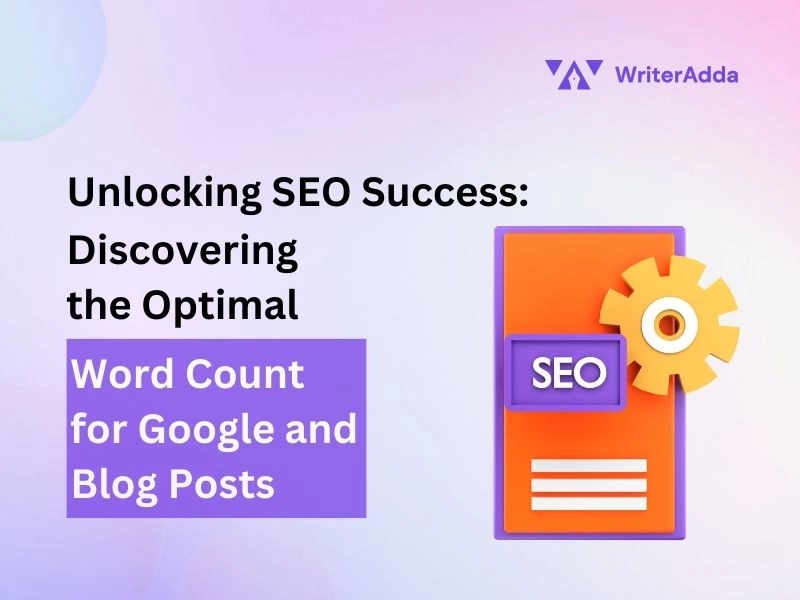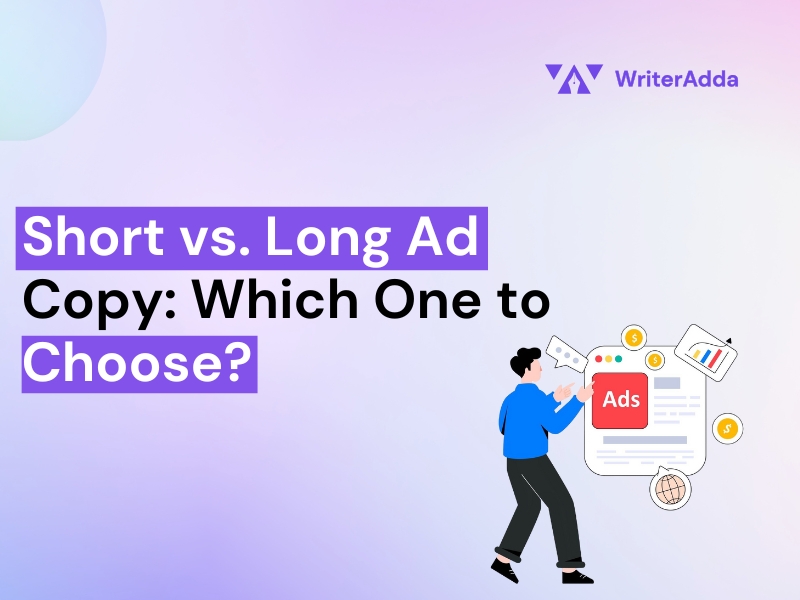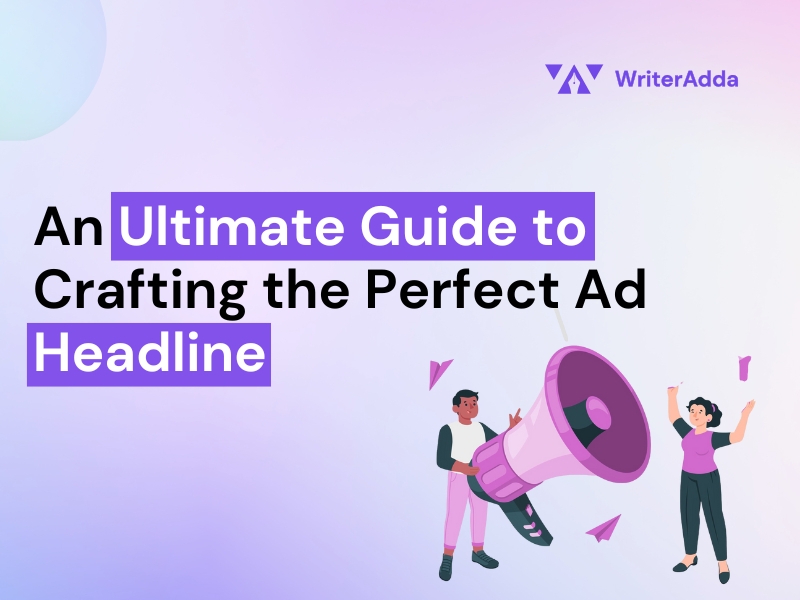In the area of online content development, one frequently asked question is, “What’s the best word count for Google, blog posts, and SEO?” With search engine algorithms constantly evolving and the rising significance of user experience, determining the proper word count can have a big influence on the exposure and success of your content. In this blog article, we will look at the aspects to consider when establishing the optimal word count for your Google rankings, blog posts, and SEO activities.
Does Word Count Really Matter?
The question of whether word count matters for SEO is hotly contested. Some claim that articles should be as long as possible. Others counter that what matters is the quality of the words, not their number. In truth, it’s a blend of the two viewpoints, albeit word count is still significant. Understanding why word count matters for SEO is helpful. Generally speaking, Google can detect the topic of your piece more easily the longer the material. This length aids the search engine’s ability to crawl, decipher, and rank the content in the appropriate SERPs.
In general, Google prefers lengthier content. However, we don’t advise writing long entries just for the purpose of it. Google can determine if your article is just fluffy material. And your readers may as well. It’s crucial to make sure your material is pertinent, distinctive, and appropriately matches the subject of your article. Otherwise, you run the danger of boring your audience, which will be bad for SEO and reader retention.
High word counts also give plenty of possibilities for optimization. For instance, you’ll have more chances to include your target keywords, including long-tail versions, without filling your content with them. Headings, photos, and links are additional content pieces that may be used to improve SEO. In the end, larger pieces allow for deeper topic exploration than is possible with strict word count restrictions. While you can provide some answers with scant information, it may not always be the greatest strategy for articles and web pages.
Understanding Google’s Perspective
Google wants to provide its consumers with the best, most relevant information possible. Google doesn’t have a set word count restriction, but they do place a high importance on user experience and the usefulness of a website. Because lengthier material has the ability to provide more detailed information and provide in-depth answers to user questions, it often ranks higher.
a. User Intent and Search Queries
When optimizing content for Google, it’s crucial to align with user intent. Take into account the search queries that your target audience may employ while seeking information pertaining to your subject matter. Longer, more comprehensive articles tend to perform better for informational queries, while shorter, concise content may be suitable for transactional or navigational queries.
b. Content Depth and Quality
Length alone does not guarantee a high-ranking position on Google. The content must be engaging, well-researched, and informative. Strive to deliver valuable content to your readers by responding to their inquiries, acknowledging their challenges, and presenting distinctive perspectives. Google’s algorithms are becoming increasingly sophisticated in evaluating content quality, so prioritize depth and relevance over word count alone.
Blog Posts and Engagement
Writing blog entries that appeal to your audience is critical for growing a devoted following and driving interaction. Although user engagement metrics are taken into account by Google’s algorithms as an indicator of high-quality content, the appropriate word count for blog posts may vary based on your target market, sector, and kind of material.
a. Audience Preferences
Recognize the tastes & patterns of your audience. While some readers might like shorter, more succinct articles that offer immediate solutions, others could value longer, in-depth writings. Regularly review your blog’s stats to learn more about the content kinds that are most successful and use that information to guide your word-count selections.
b. Readability and Scannability
Regardless of word count, prioritize readability and scannability. To break up the material and make it simpler for readers to browse and understand, use subheadings, bullet points, and brief paragraphs. Make sure your material is simple to understand by taking into account the typical web user’s attention span.
SEO and Content Optimization
A systematic strategy, including keyword research, on-page optimization, and technological considerations, must be implemented to optimize your content for search engines. Although word count is only one component of SEO, it may have an impact on a number of elements that affect how you rank in searches.
a. Keyword Targeting and Competition
Keyword research assists you in identifying relevant keywords and phrases that consumers are searching for. Longer articles offer more chances to organically include additional keywords and long-tail variants. It is important to strike a balance and avoid excessive keyword usage in your content as it can negatively impact your search engine rankings. While strategically incorporating keywords into your content, concentrate on adding value and relevance for your audience.
b. Backlinks and Social Sharing
Comprehensive, well-researched material is more likely to generate the backlinks and social media shares that are highly important for SEO. The probability of other websites and influencers linking to and sharing longer articles containing valuable original content is higher. This might result in better search exposure and increased domain authority.
What Is the Best Word Count for SEO?
There are a few common SEO best practices and principles to abide by. However, there isn’t always a single solution for word count SEO. The optimum word count instead relies on a number of variables, including the kind of page you’re making. According to a study by Backlinko, 1,447 words is the ideal word count for SEO. This does not, however, imply that posting 1,500 or 2,000 words would guarantee your article the top spot in the SERPs.
Rather, this figure represents the average word count found in the pages and posts that achieve the highest rankings in Google search results. Consequently, it serves as a reference point for assessing your content and determining whether it offers sufficient depth and value for Google to consider ranking it.
Let’s examine the ideal lengths for various content genres. Just to reiterate, these are only broad estimations.
1. Blog Posts
In the majority of websites, blog posts, and articles, like the present one, constitute the primary content. Typically, their length can vary between 300 and 1,000 words, which is considered suitable. However, when it comes to comprehensive long-form articles, such as tutorials or how-to guides, they should aim for a word count closer to 1,500. Going beyond that limit (unless under specific circumstances with valid reasons) tends to raise caution from both Google and users regarding the post.
2. Educational Content
The length of educational content tends to be extended primarily because of the inherent nature of the subject matter. It is important to strike a balance and avoid excessive keyword usage in your content as it can negatively impact your search engine rankings. Therefore, it is advisable to target a word count of around 2,000 in order to incorporate clear and thorough content. If the word count falls significantly below that threshold, both your readers and search engines may perceive it as a lack of necessary information.
3. Product Pages
Effective product pages showcase captivating visuals and compelling written content. However, it’s important to avoid using exorbitantly long descriptions in order to present your items in a visually appealing and condensed manner. A reasonable word count for product pages is around 300 words. This length provides plenty of area for a product’s description, emphasizing its distinctive qualities and advantages, and adding both short-tail and long-tail keywords but without resorting to keyword stuffing or full-length article style.
4. News Articles
When it comes to news-based content, it is crucial to maintain a factual and direct approach. Opinions and commentary have limited space in this context. Therefore, news articles should ideally range between 500 and 800 words. This length allows for comprehensive coverage of events, and the inclusion of relevant details and quotes, all while staying focused and avoiding tangential discussions.
5. Landing Pages
Landing pages’ main goal is to increase leads and conversions. The main emphasis should be on directing the visitor to your Call to Action (CTA). Hence, an optimal word count for your landing pages in terms of SEO is approximately 500 words. This length enables you to offer sufficient information, including relevant keywords, to captivate and educate your readers. Furthermore, it remains concise and to the point, motivating users to take the intended action.
In general, it is crucial to bear in mind that the optimal word count for SEO should be determined by the requirement to create a high-quality and informative content piece. Prioritizing writing for your readers should always take precedence over catering solely to search engines. Embracing this approach can naturally enhance your SEO rankings.
How to Achieve Your Word Count Goal
When you’re working on a writing task, it might be difficult to meet your desired word count. Reaching the target word count needs careful planning and efficient writing approaches, whether it be for an essay, article, or blog. The following tactics can assist you in reaching your desired word count:
1. Plan Your Content
To begin, make a list of the key ideas or parts you wish to include in your article. This will provide you with a clear framework to work inside and aid in mind organization. To ensure comprehensive coverage of all relevant information, it is advisable to break down your work into easily manageable sections.
2. Elaborate On Your Ideas
As soon as you begin writing, be sure to provide enough specifics and justifications for each argument. Avoid being overly brief or ambiguous. By including illustrations, proof, and pertinent details, you can strengthen your arguments. This will increase the length and caliber of your work in addition to increasing its word count.
3. Make Use Of Concrete Language
Use descriptive language to give your work more substance and involvement. To paint a clear image in the reader’s mind, use sensory elements, adjectives, and adverbs. This not only broadens your material but also improves the reading experience.
4. Refine And Enlarge
After you’ve completed your first draft, evaluate and modify it. Take note of any areas where you have room to elaborate, add more instances, or offer more details. Check to see if any areas require more depth or if there are any gaps in your material. Editing and modifying your work will enable you to meet your word count goal while also increasing the general quality of your writing.
Conclusion
Determining the ideal word count for Google, blog posts, and SEO lacks a definitive answer, as numerous factors contribute to the equation. Key elements include comprehending your audience, aligning with user intent, delivering top-notch content, and optimizing for search engines. Ultimately, finding harmony between word count, relevance, and reader value is crucial for enhancing visibility and engagement. By catering to both user expectations and search engine criteria, you can achieve better outcomes in terms of visibility and engagement.




